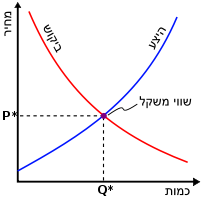The only thing more inconsistent than a libertarian who supports Intellectual Property (IP) is a libertarian that doesn’t but continues to support Private Property (PP).

- Image by gurdonark via Flickr
The only thing more inconsistent than a libertarian who supports Intellectual Property (IP) is a libertarian that doesn’t but continues to support Private Property (PP).
Renunciation of IP is actually a very trendy thing to do by fledging right-libertarians. I would venture to suggest that it might be the very first dip many take in libertarian waters.
Some will do it on a purely practical grounds, such as the devolution of the Free Software concept that is Open Source, by taking out all the ethical base in order to make it more “business friendly”. Others, on the other hand will renounce it on ideological reasons, namely by claiming that the concept of IP is nothing more than a state sponsored monopoly and thus illegitimate. I’ve actually been stumbling on this type of reasoning quite a bit lately and something about sounded inconsistent.
And the other day it struck me as I was arguing with an Agorist, who was at that point defending private property. The argument he had made in another passing comment against IP was the same as above (IP is state-sanctioned monopoly blah-de-blah) so as I was pressuring him to explain how PP would remain in a stateless society where the workers would be capable of seizing the factories without fearing state reprecursions he gave me a most underwhelming answer: “Any sensible free market court would rule against workers who tried to violently seize the factory they worked in.”
But why would any such “sensible court” side with PP? Because it is self-evident? But obviously it is not, for the workers attempting the seizure of the means of production. don’t see it. Because it is a Natural Law? Don’t make me laugh.
But lets for a moment consider that indeed the courts side with the Capital instead of labour. The question then arises of why such a “sensible free market court” would not in a similar way side with IP as well? Any possible argument one can make in defence of PP can most likely or with slight modifications be made in defence of IP as well.
The thing is, that here the anti-statists ((No, they aren’t Anarchists. That’s much more than simple anti-statism)) are blinded to the fact that PP claims are state-sanctioned in exactly the same was as IP. They assume that in a post-state world, the federation of courts (or what have-you in Agorist Libertopia) will protect private property in exactly the same way as before but for some reason refrain from doing so in regards to intellectual property.
And since their dismissal of IP is not based on an ethical argument but rather on the infantile “It’s not legitimate because the state does it”, in a stateless future where IP is still supported by the courts and enforced by those private insurance/security forces, they can only stay silent.
Of course there are the few libertarians who do dismiss IP on purely utilitarian grounds. But then they go on to support PP on ideological reasons, which is a clear sign of ideological bankrypcy. This is because from a utilitarian perspective, the abolition of PP is superior (for reasons I shan’t go through here).
And because of this, such libertarians will forever remain inconsistent, for to avoid that, they would have to look at both types of property on ideological grounds and therefore support both or to look at them from utilitarian grounds and thus reject both.
![Reblog this post [with Zemanta]](https://i0.wp.com/img.zemanta.com/reblog_e.png?w=980)





